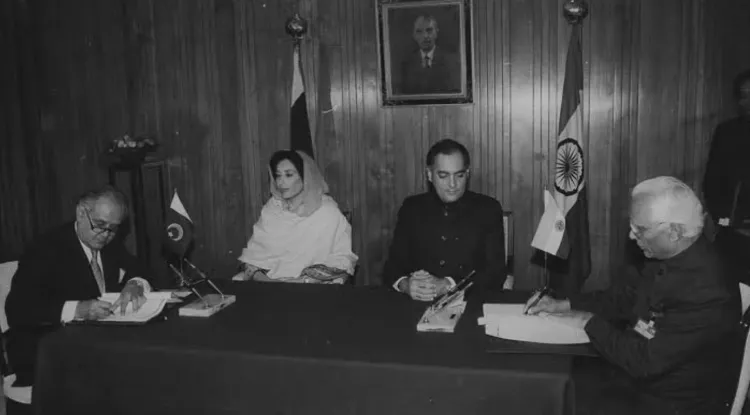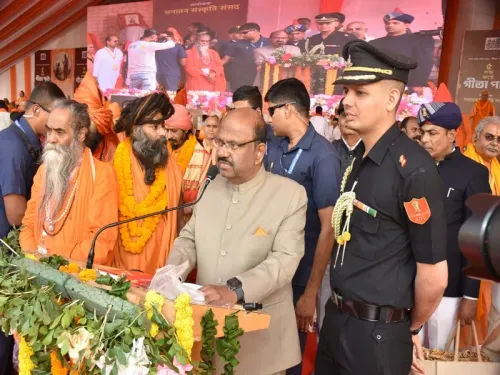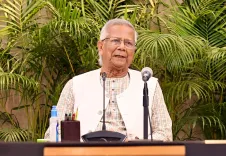Did Pakistan's Blackmail Influence India's Nuclear Doctrine?

Synopsis
Key Takeaways
- The Indo-Pak Nuclear Agreement was signed in 1988, compromising India's nuclear doctrine.
- The BJP accuses Congress of prioritizing optics over national security.
- PM Modi's policies reflect a significant shift in national security strategy.
- Zero tolerance for nuclear blackmail is a core principle of Modi's doctrine.
- Historical failures continue to impact current geopolitical dynamics.
New Delhi, May 25 (NationPress) Following Prime Minister Narendra Modi's warning of 'no nuclear blackmail' directed at Pakistan, the BJP has criticized Congress for its historical compromises regarding India's nuclear interests.
BJP leader Amit Malviya accused the Congress party of prioritizing “optics over national security,” highlighting the failures of Prime Minister Rajiv Gandhi’s foreign policy and an overreliance on goodwill diplomacy that placed India at a disadvantage three decades ago.
In a post on social media, Malviya stated, “Strong leadership involves protecting sovereignty, not revealing vulnerabilities.”
He pointed out that in 1988, Prime Minister Rajiv Gandhi signed a pact with Pakistan’s Benazir Bhutto that compromised India’s nuclear doctrine even before it was formally developed.
Sharing a photo of former Prime Ministers Rajiv Gandhi and Bhutto, he noted, “The Indo-Pak Nuclear Agreement — officially known as the ‘Agreement on the Prohibition of Attack against Nuclear Installations and Facilities’ — was signed on December 31, 1988. While it was presented as a confidence-building measure, it actually exposed India’s nuclear infrastructure to an adversary that has a history of supporting terrorism and conflict.”
“According to this agreement: India and Pakistan are to exchange lists of all nuclear facilities annually. The purpose: To avert pre-emptive strikes and mitigate the risk of nuclear escalation. This agreement took effect on January 1, 1991, and remains in force since January 1, 1992, irrespective of wars, terrorist attacks, or diplomatic breakdowns,” he elaborated.
Malviya criticized the decision as stemming from a weak foreign policy and misplaced faith in goodwill diplomacy, ultimately undermining India’s strategic and national security interests.
“This serves as a stark reminder of how Congress has consistently placed optics above national security. True leadership is about safeguarding sovereignty, not exposing vulnerabilities,” asserted the BJP leader.
Earlier, during his address to the nation regarding Operation Sindoor, PM Modi indicated a significant shift in the government’s approach toward national security and counter-terrorism.
The three key components of the Prime Minister’s anti-terror strategy include decisive retaliation on India’s terms, zero tolerance for nuclear blackmail, and no distinction between terrorists and their backers.
Numerous global media outlets, including The Guardian, acknowledged PM Modi’s declaration that India would not accept “nuclear blackmail” in any future conflicts with Pakistan.










